
Why you need to wear sunscreen on your face daily
It’s not just the occasional burn you need to worry about, shares Deanne Mraz Robinson, MD, FAAD, assistant clinical professor of dermatology, Yale New Haven Hospital, research shows that premature aging and skin cancer are the result of the cumulative exposure to UVA and UVB rays. And yes, even if you wear CC Cream or foundation with SPF, you still need to layer a sunscreen on underneath, she says. “If you’re going to be spending time outside, even if it’s under an umbrella, you shouldn’t count on makeup as your protection,” Dr. Robinson says. Read on for our favorite sunscreens for the face.
What type of sunscreen should you wear on your face?
There are two types of sunscreen, chemical, which work by absorbing UV rays and then converting them into heat energy on top of the skin, and physical, which act as a block on top of the skin, reflecting UV rays instead of absorbing, explains Karen Fernandez, lead aesthetician at SkinSpirit medical clinics, who recommends the latter. “Because the active ingredients in physical sunscreens aren’t absorbed into the skin, they usually don’t irritate the skin, so even those with sensitive skin can use them safely. Look for a facial sunblock (like these best natural sunscreens) that lists zinc oxide or titanium dioxide as active ingredients.”
Fernandez also recommends considering your skin type when choosing a sunscreen for your face. “If you’re acne prone, you’ll want to be especially careful to choose an oil free SPF with a light texture, and may want to consider powder options,” she says. “Those with dry skin, on the other hand, can tolerate a thicker texture, but will need a deeper exfoliation afterwards to keep their skin clean.” Psst! Don’t forget about sunscreen for your scalp, either.
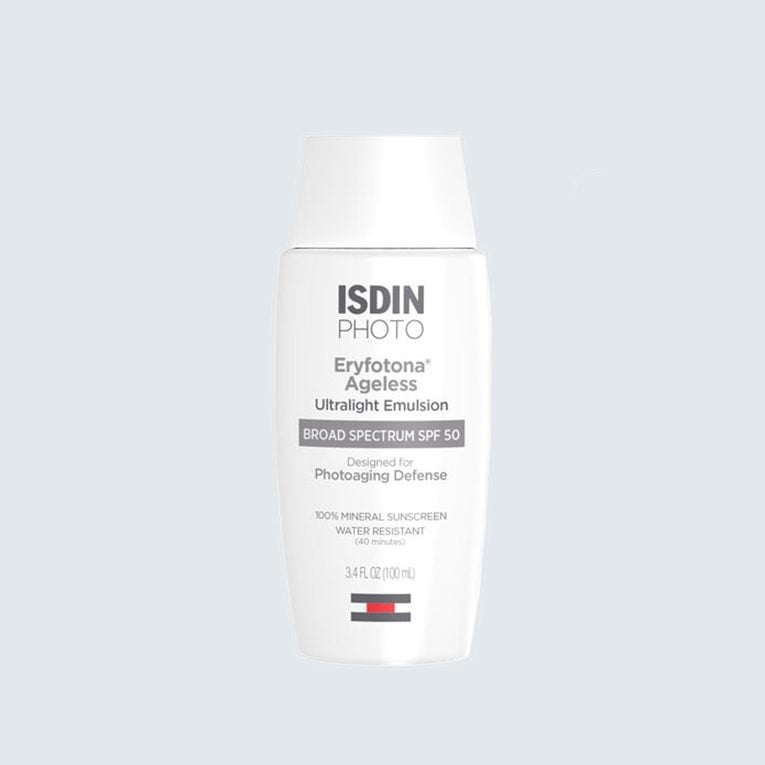
Best tinted
If one of the reasons you’re hesitant to wear a sunscreen for your face is the white cast physical sunscreens can leave behind, try a lightly tinted one like ISDIN Enyfotona Ageless Tinted Mineral Sunscreen. “I prefer and recommend physical sunscreens with zinc or titanium dioxide as the active ingredients,” Dr. Robinson says. “These formulations sit on the surface of the skin and repel the sun’s rays, they aren’t absorbed into the skin, and I find them most effective.” Want to look younger? Start by making these 50 everyday things a habit.
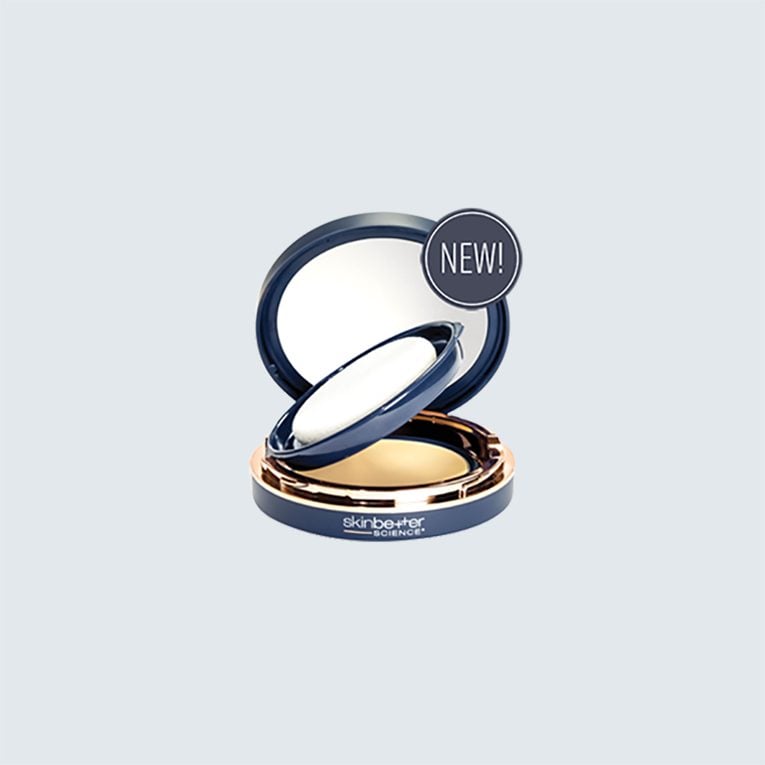
Best compact
The Skinbetter Sunbetter® TONE SMART SPF 68 Sunscreen Compact is a mineral sunscreen powder with a light tint that you can dust on over makeup throughout the day. “It has a high SPF of 68, adapts to your skin tone for perfect coverage and comes in a beautiful compact you can carry in your makeup bag and reapply as needed,” Fernandez says. “It’s the opposite of the white, sticky and messy sun blocks of the past!”

Best for darker skin tones
“There are a lot of myths out there about sunscreen and skin cancer in patients with skin of color,” says Seemal R. Desai, MD, FAAD, president and medical director, Innovative Dermatology and immediate past president, Skin of Color Society. “My job as a board-certified dermatologist expert in skin of color is to educate and dispel myths because people of color do get skin cancer and oftentimes it can be more aggressive for example as in the case of melanoma for example.” The Unsun Mineral Tinted Face Sunscreen in Medium/Dark is a mineral sunscreen that works as a primer and color correction, in addition to protecting against the sun’s damaging rays. The Medium/Dark formula works best for olive to dark chocolate skin tones.
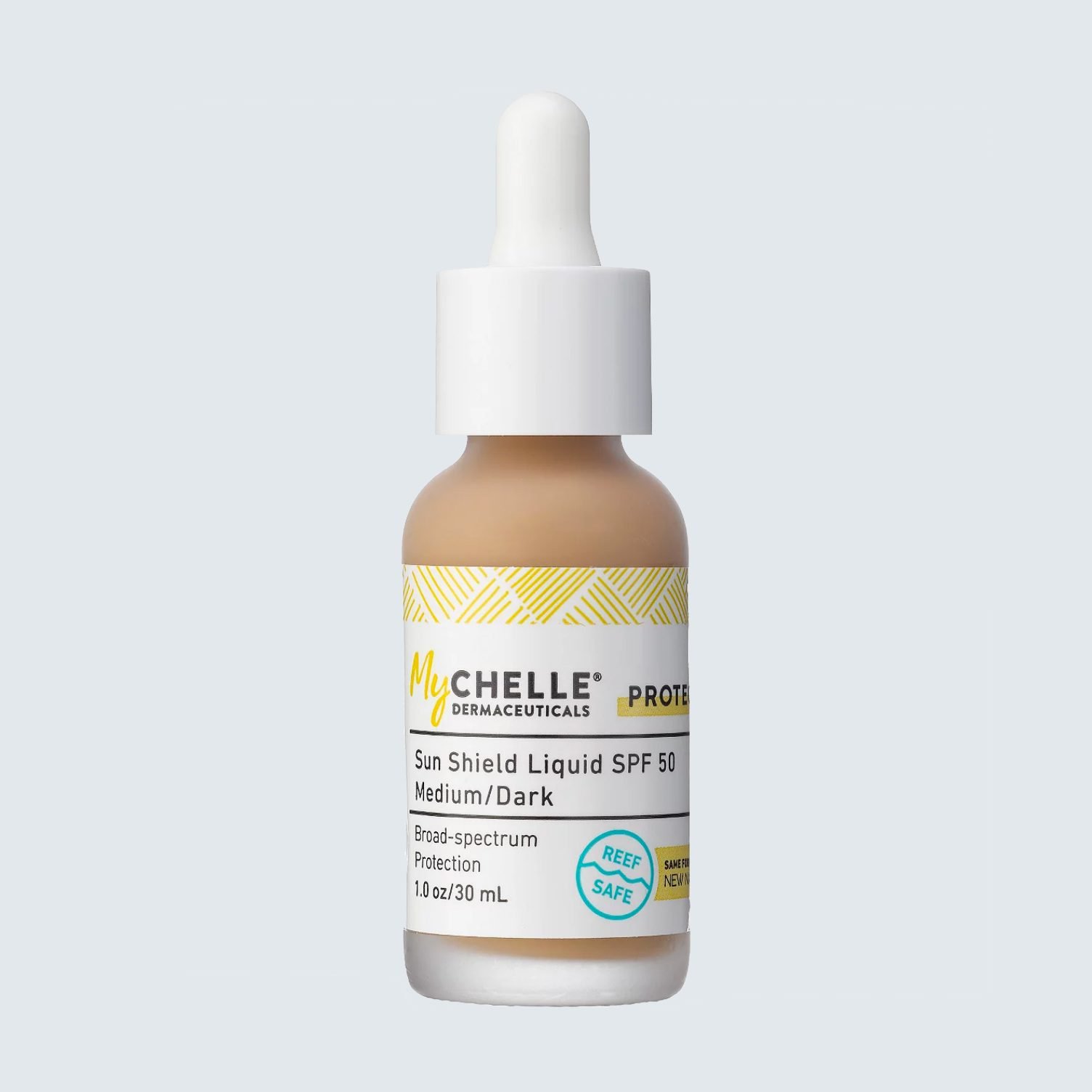
Best for acne
“If you’re acne-prone select a formula that specifies its oil-free/non-comedogenic,” Dr. Robinson says, like Mychelle Dermaceuticals Sun Shield Liquid SPF 50. The oil-free liquid absorbs quickly, won’t feel heavy on your skin, and gives you a matte finish. The mineral-based sunscreen is perfect for layering under makeup as a shine-free protective primer. It comes in a non-tinted version and two shades of a lightly tinted one.
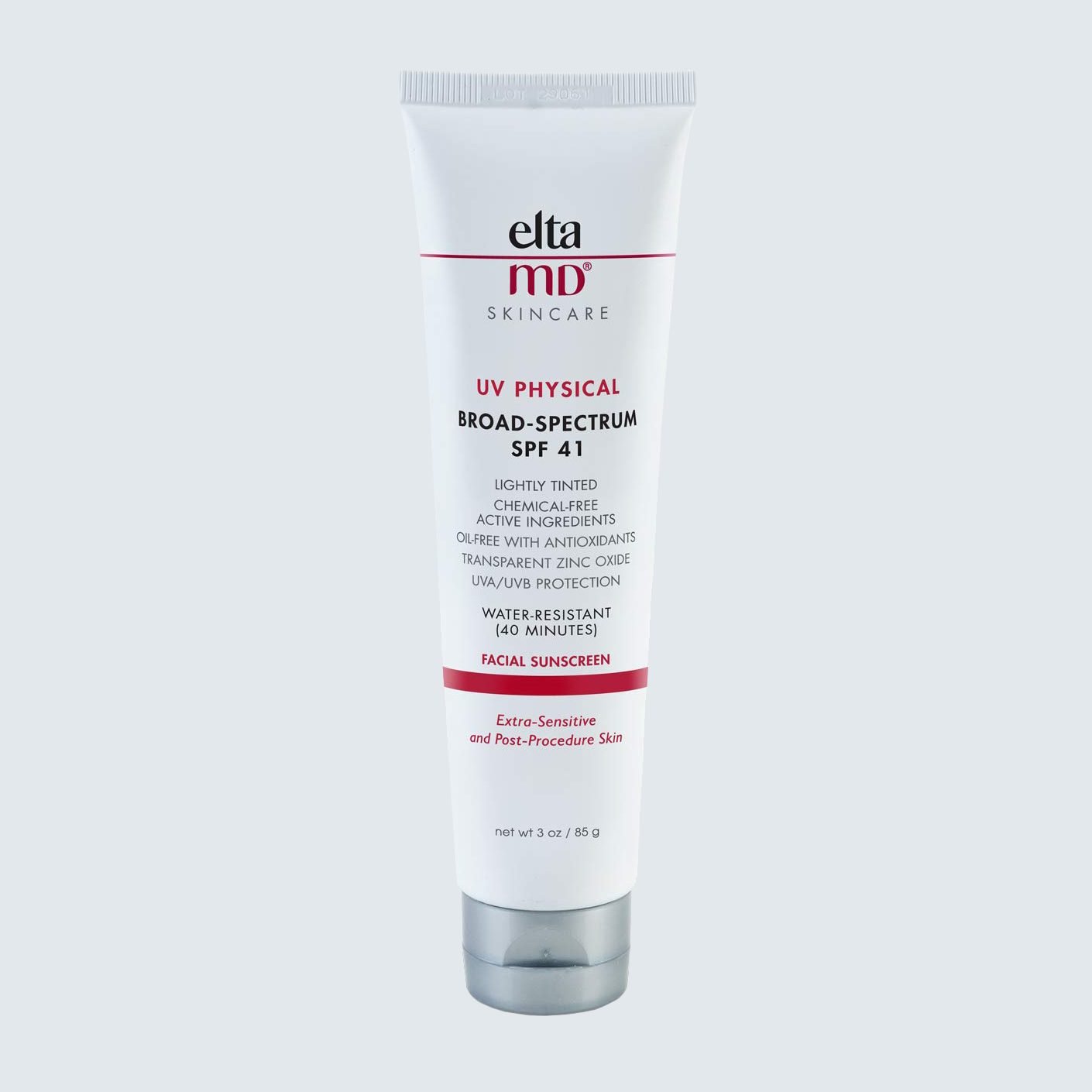
Best water-resistant
Whether you’re headed out to play tennis or taking a hike, a water-resistant sunscreen for face is a smart option. EltaMD UV Physical Tinted Face Sunscreen SPF 46 will stay put for up to 45 minutes in the water, plus is oil-free, fragrance-free, and safe for all skin types. Its main ingredient is transparent zinc oxide and it contains a light tint so it quickly disappears after you apply it.
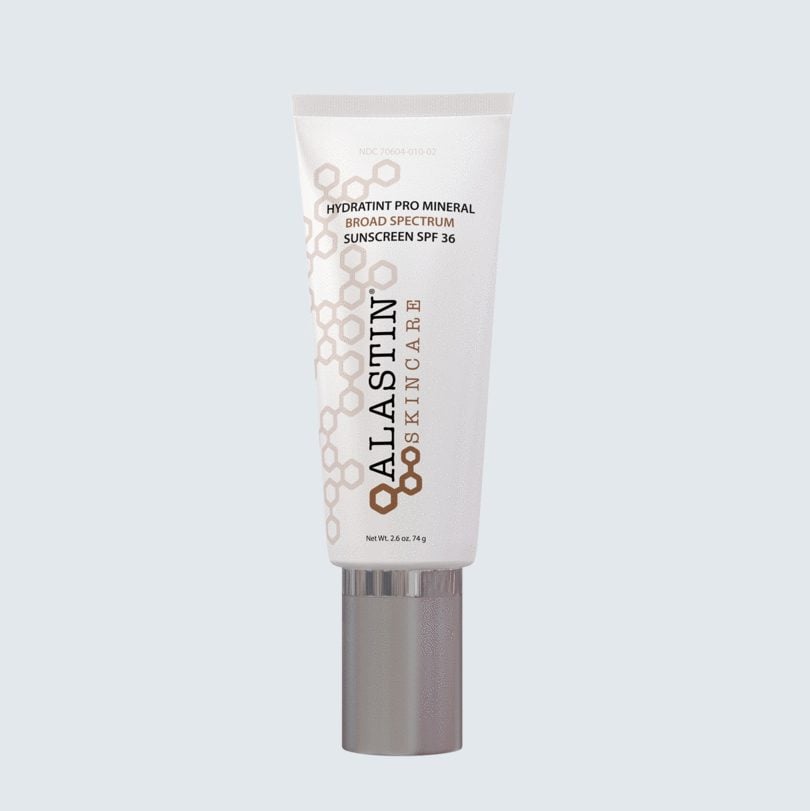
Best lightweight
The Alastin Hydratint Pro Mineral Broad Spectrum Sunscreen SPF 36 is an excellent choice for daily protection, notes Fernandez. “It goes on easily, with a beautiful sheen and the tint adjusts for all skin types, particularly those with darker skin.” She suggests applying after antioxidants (and any serum, peptide or growth factors) for elegant, all-day protection. The zinc and titanium dioxide sunscreen for face has a light tint, is water-resistant for up to 80 minutes, and is reef-friendly.
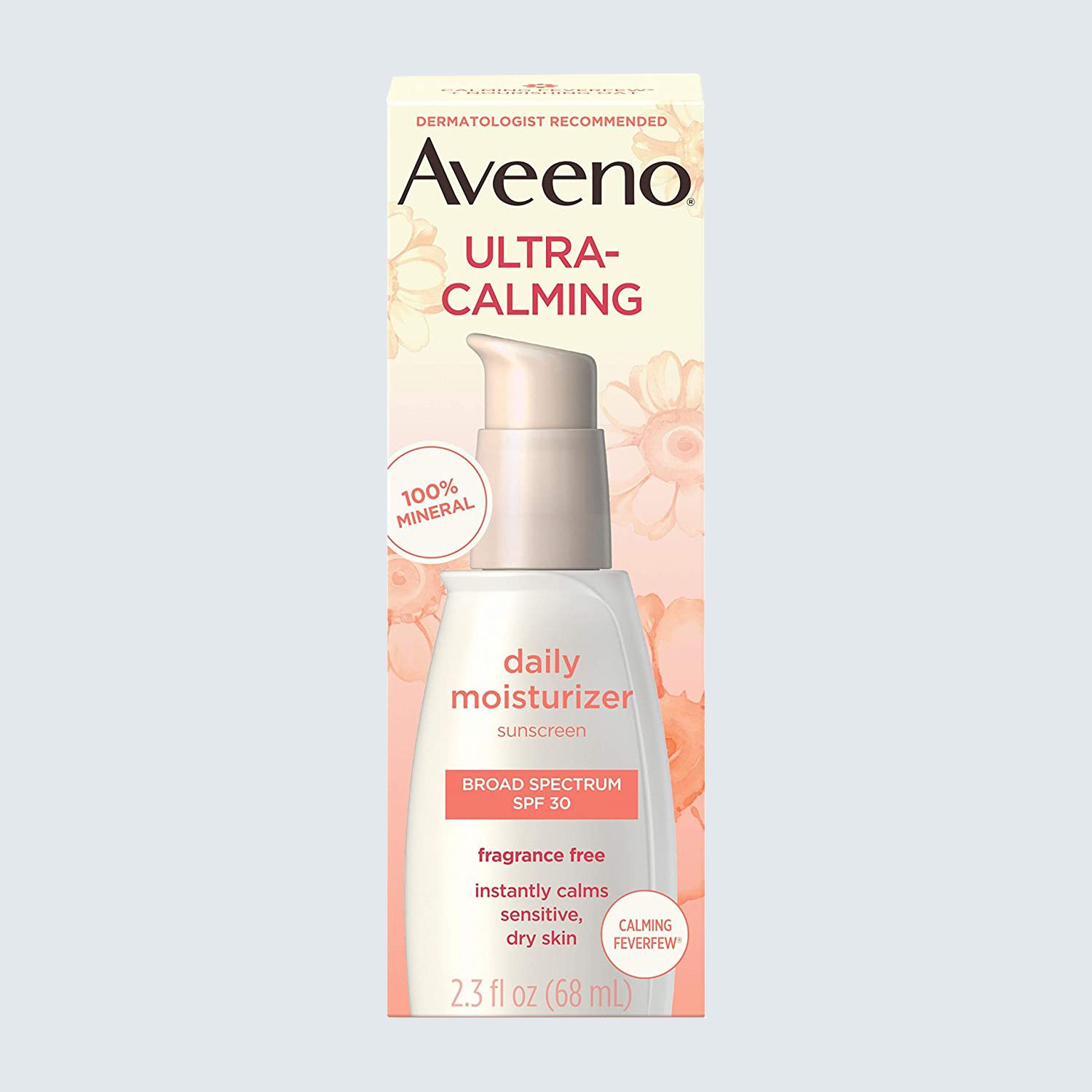
Best moisturizer
A sunscreen-moisturizer combo is a smart choice, says Dr. Desai. “You can apply this in the morning as part of your routine skin care and you don’t even realize that you’re putting on a sunscreen or an SPF.” One we like is Aveeno Ultra Calming Daily Moisturizer SPF 30, a mineral sunscreen plus calming feverfew and nourishing oat to soothe irritated skin.

Best long-wearing
“Make sure to apply sunscreen at least 30 minutes before intense sun exposure so that the it has time to properly absorb into the skin,” advises Dr. Desai. Paula’s Choice Super-Light Daily Wrinkle Defense Broad Spectrum SPF 30 isn’t only fast absorbing, reviewers note that it doesn’t look cakey under their makeup, even at the end of the day.
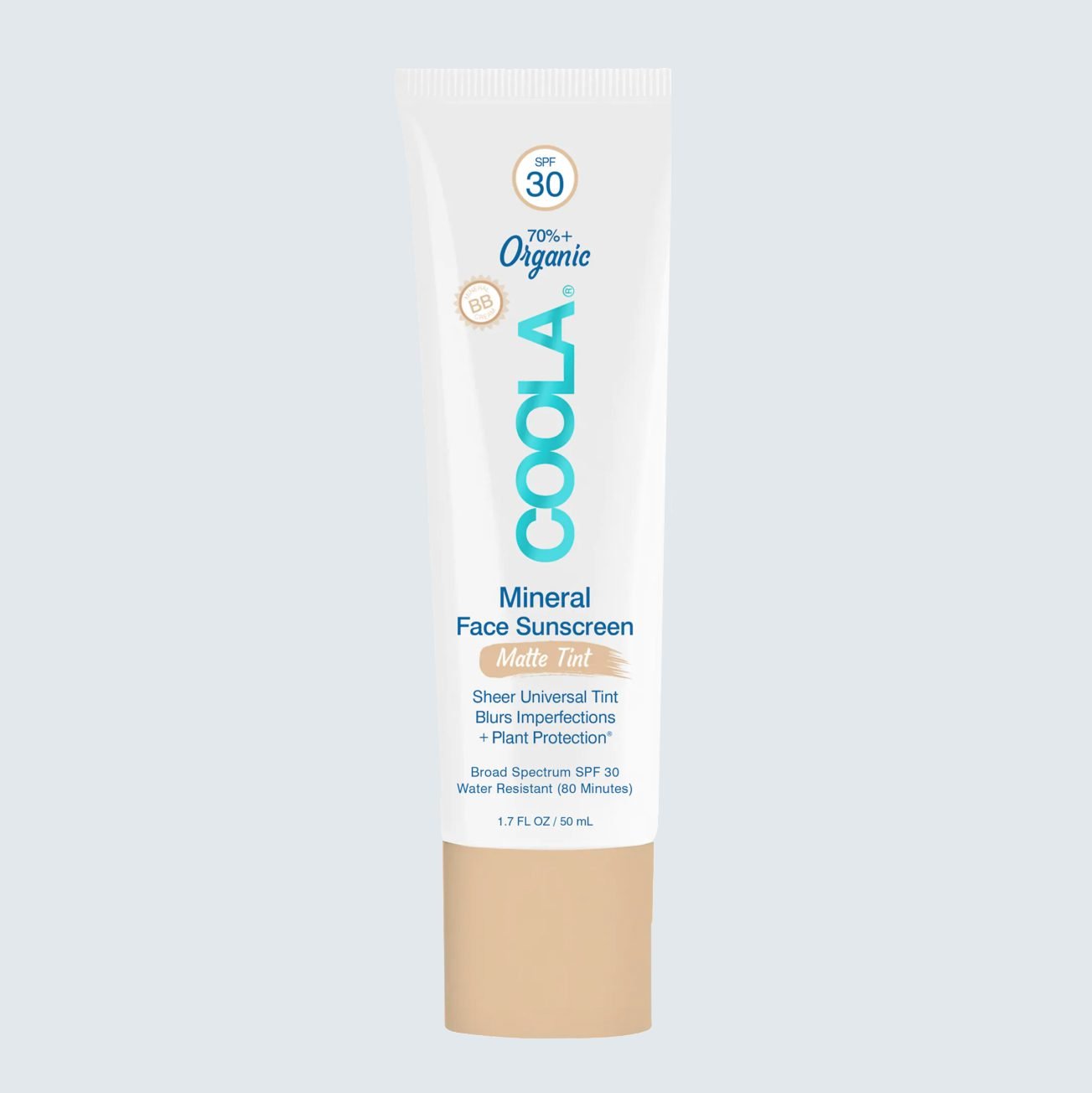
Best matte finish
If your excuse for not wearing sunscreen is that it makes your skin look greasy, this Coola Organic Mineral Face Matte Tint Sunscreen, SPF 30 is for you. The zinc and titanium dioxide lotion contains antioxidants and nutrients to help keep your skin healthy and smooth, blurs imperfections, and leaves behind a lasting matte finish.
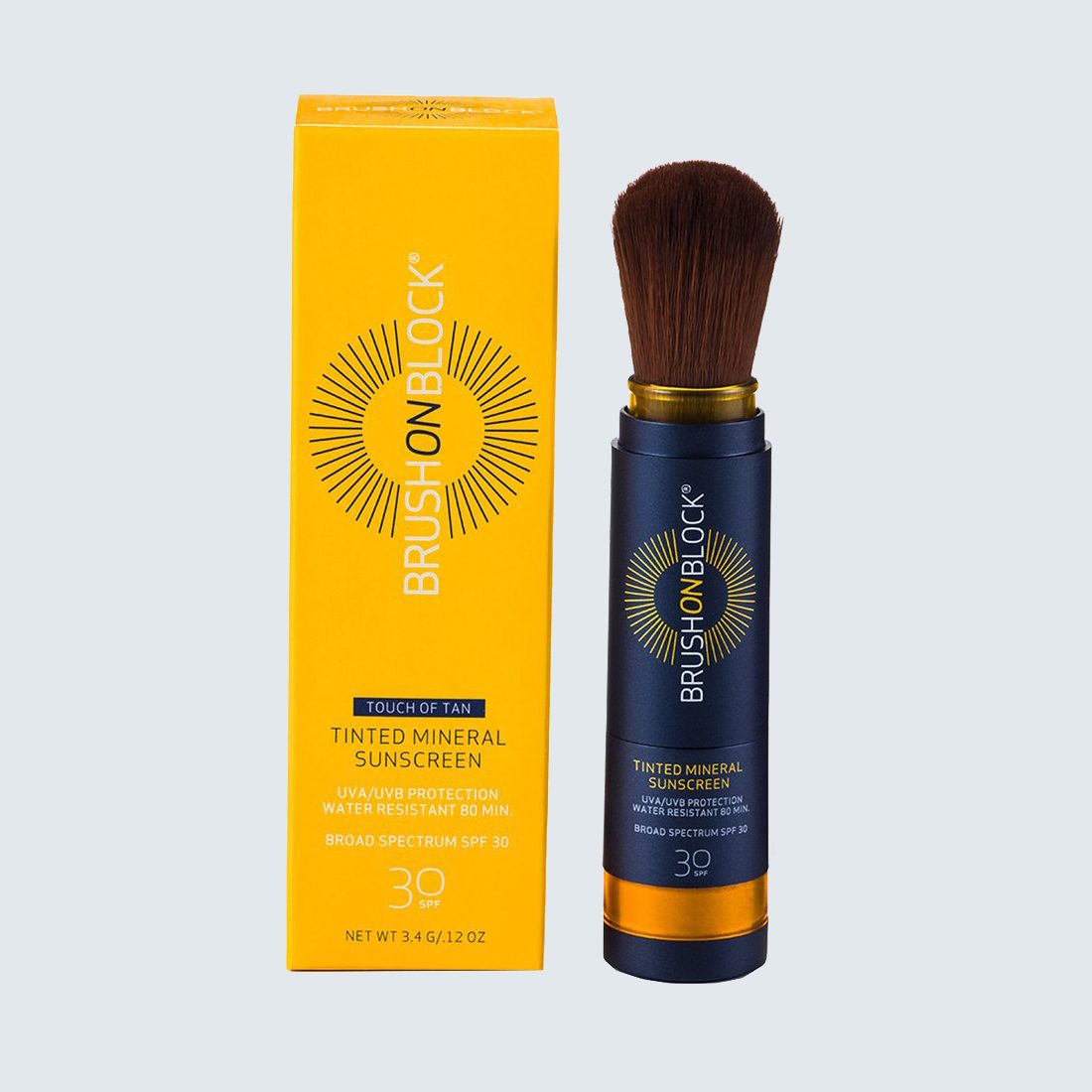
Best powder
A powder sunscreen that you can dust on for quick touch-ups is another smart option when you’re on the go and need to reapply. The Brush on Block Touch of Tan Mineral Powder Sunscreen is portable, has a hint of color, and is waterproof for up to 80 minutes. If you’re looking for a sun-free glow, check out these top self-tanners.

Best for babies
Babies need sunscreen on any part of their body that’s exposed to the sum, and it’s hard to do better than the Baby Bum Mineral SPF 50 Sunscreen Spray-Fragrance Free. Spray it on your hands, then gently dab the plant-based, hypoallergenic sunscreen on baby’s forehead, nose, cheeks, and chin.
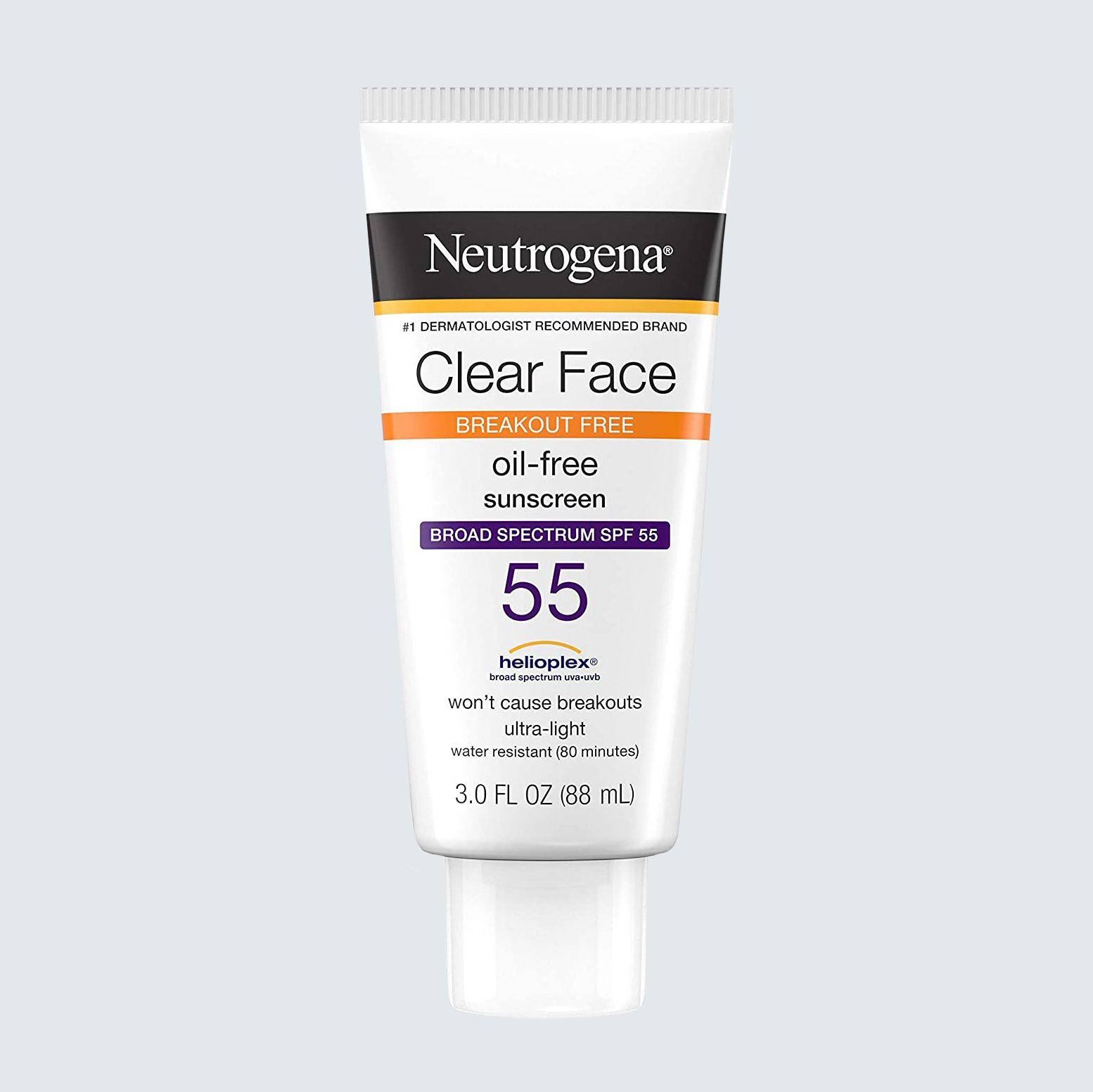
Best drugstore
You don’t need to shell out big bucks for an effective sunscreen for your face. Neutrogena Clear Face Broad Spectrum SPF 55 is a popular favorite that’s non-comedogenic and water-resistant for up to 80 minutes. Because it’s a chemical sunscreen rather than a physical one, you’ll want to apply it before any moisturizer. “Chemical sunscreens absorb into the skin where they absorb UV rays, convert the rays into heat, and release them from the body,” Dr. Robinson says. “For them to work they need to be applied directly onto clean skin so they can be absorbed and do their job.”
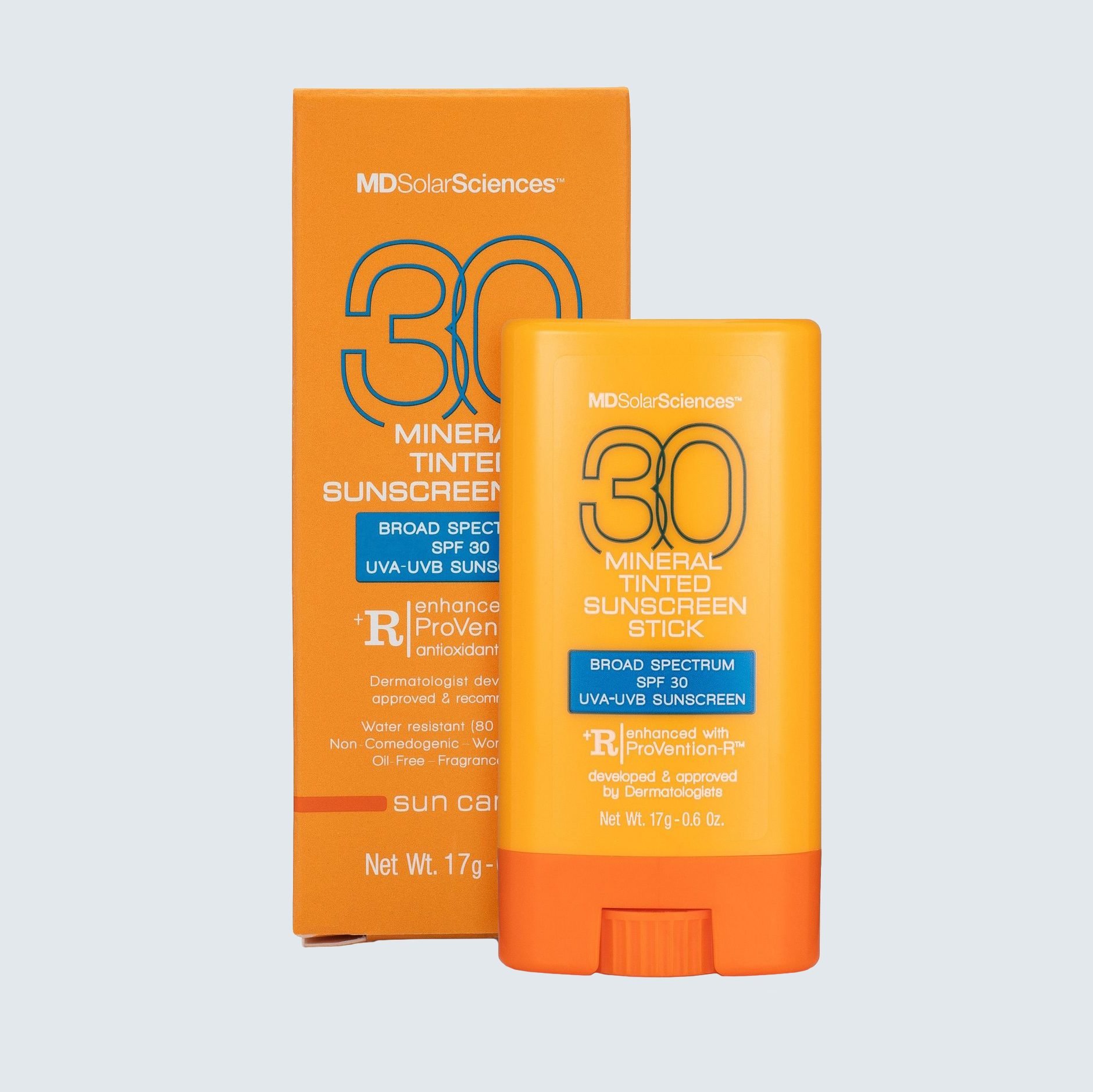
Best stick
Toss a sunscreen stick like MD Solar Sciences Mineral Sheer Tinted Stick SPF 30 in your beach bag or purse and you’ll never miss those tricky to get spots on your face, including your ears, lips, and hairline, says Dr. Robinson. The mineral formula is blended with vitamin C and leaves behind a sheer tint.
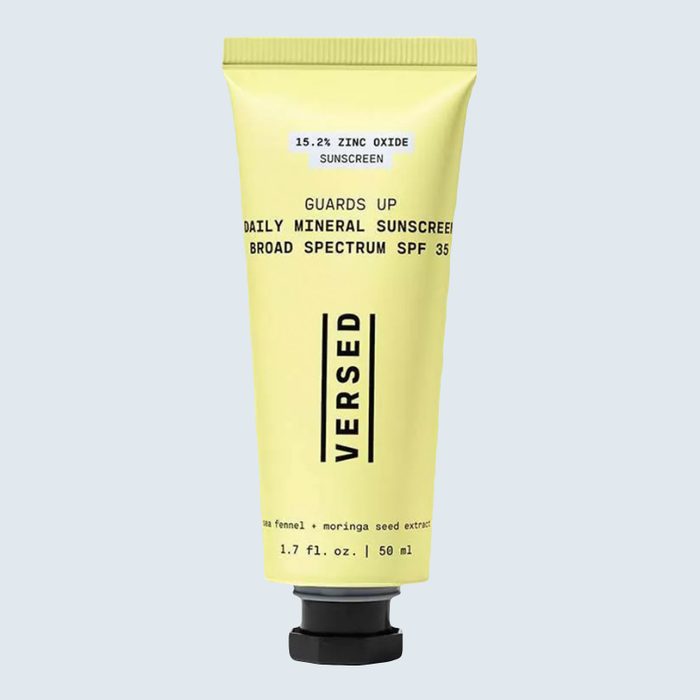
Best for protecting against blue light
Did you know that too much screen time can harm your skin? Versed Guards Up Daily Mineral Sunscreen Broad Spectrum SPF 35 not only protects against UVA and UVB rays, but also High Energy Visible Light, too, thanks to non-nano zinc oxide. The lightweight, oil-free formula is nearly invisible from the moment you apply it.
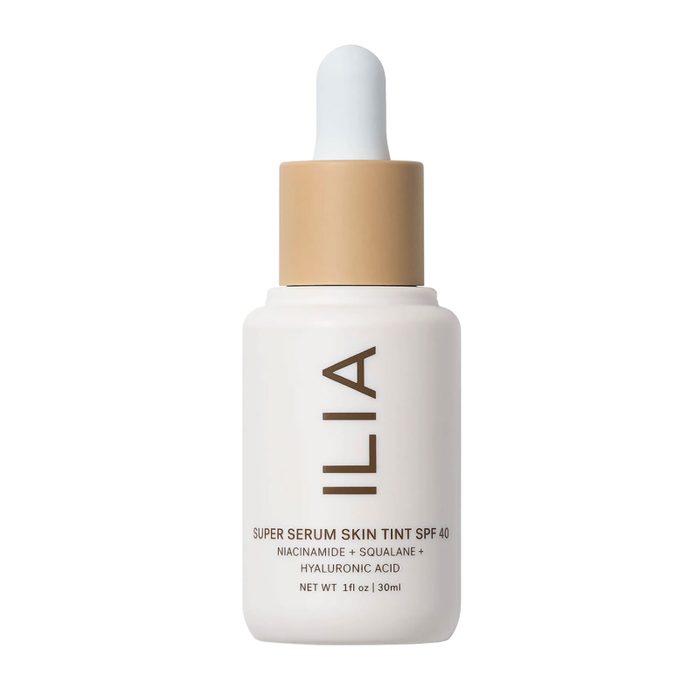
Best highlighting sunscreen
Reviewers describe Ilia Super Serum Skin Tint SPF 40 as a “SPF and highlighter in one with an incredible glow effect.” That’s because, in addition to the sun protecting non-nano zinc oxide, the serum also contains hyaluronic acid, squalene, and niacinamide—ingredients that improve the tone and texture of your skin. This product has earned the Clean at Sephora seal that certifies its free of parabens, phthalates, sulfates, and more.
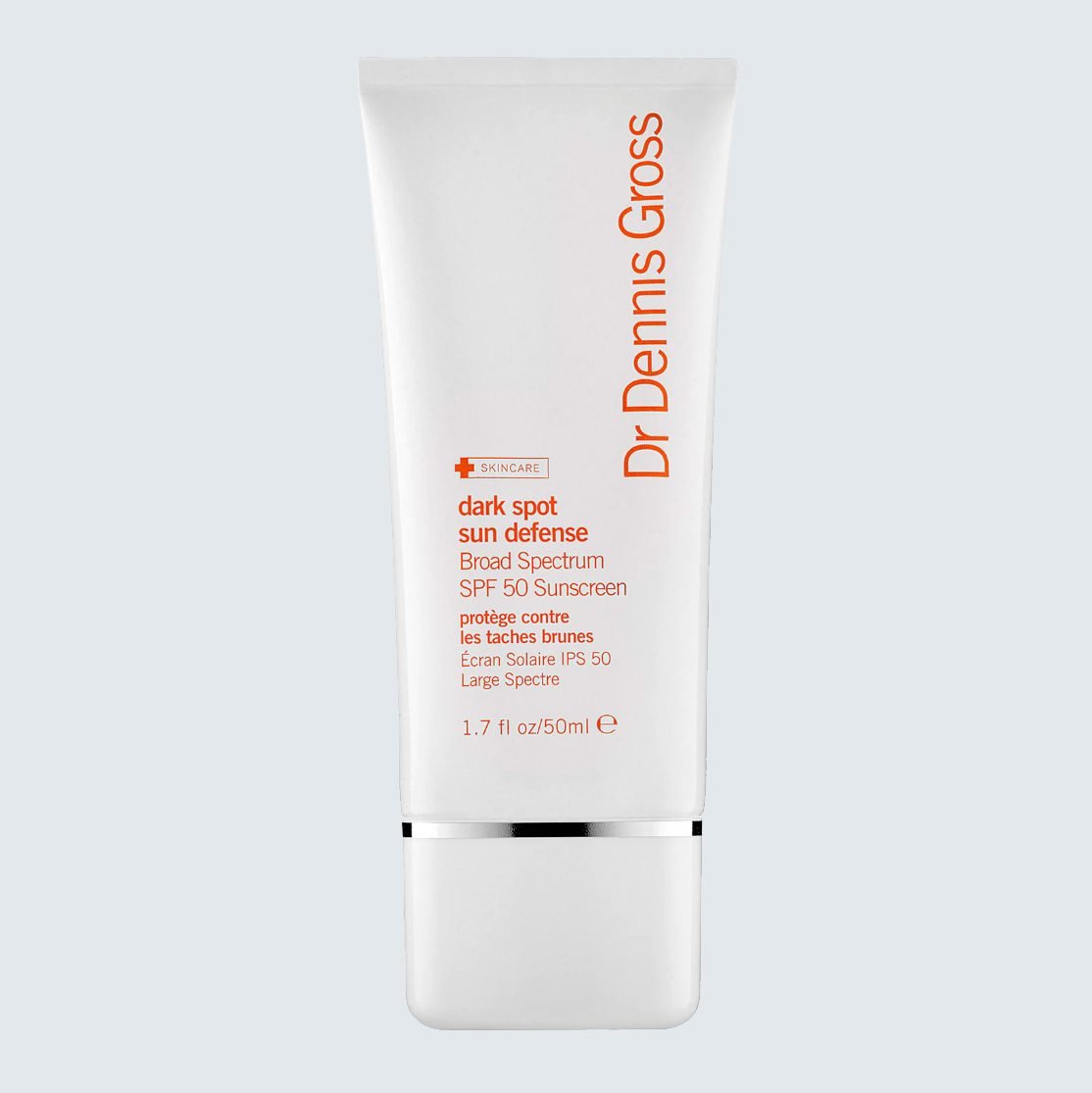
Best anti-aging
Dr. Dennis Gross Dark Spot Sun Defense Sunscreen Broad Spectrum SPF 50 doesn’t only protect your skin from the sun with physical sunscreen, it also contains melatonin plus three forms of vitamin C and vitamin E to help erase existing sunspots and improve your skin tone and texture. The addition of ceramides, hyaluronic acid, and evening primrose helps to hydrate skin and improve its elasticity. Next, read on to learn the 12 makeup rules you should know by the time you’re 40.
Sources:
- Deanne Mraz Robinson, MD, FAAD, assistant clinical professor of dermatology, Yale New Haven Hospital
- Karen Fernandez, lead aesthetician at SkinSpirit
- Seemal R. Desai, MD, FAAD, president and medical director, Innovative Dermatology and immediate past president, Skin of Color Society